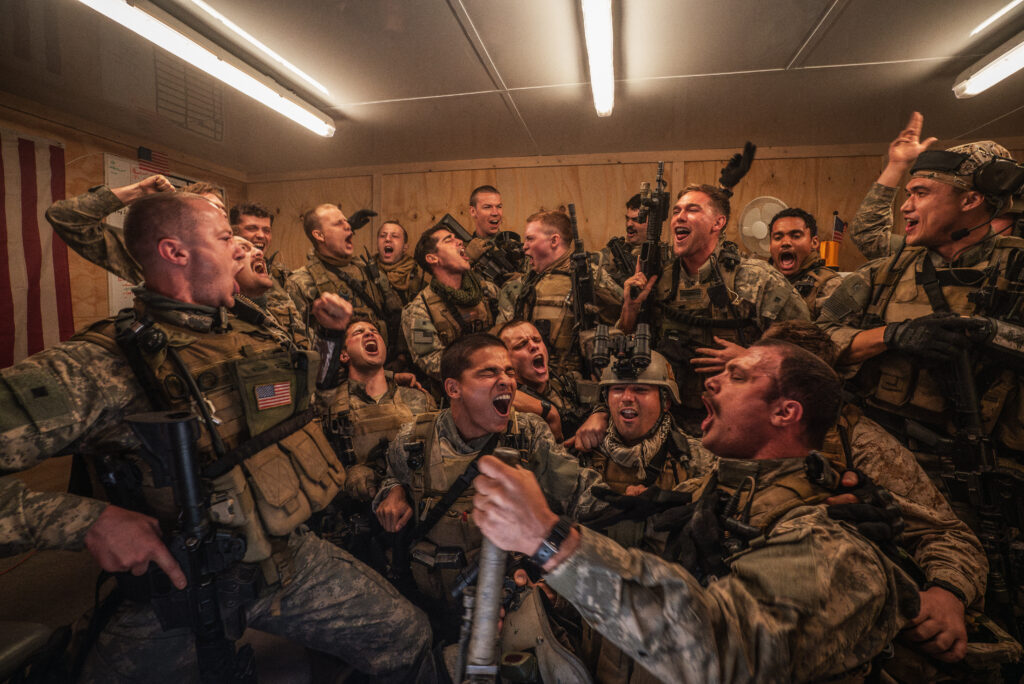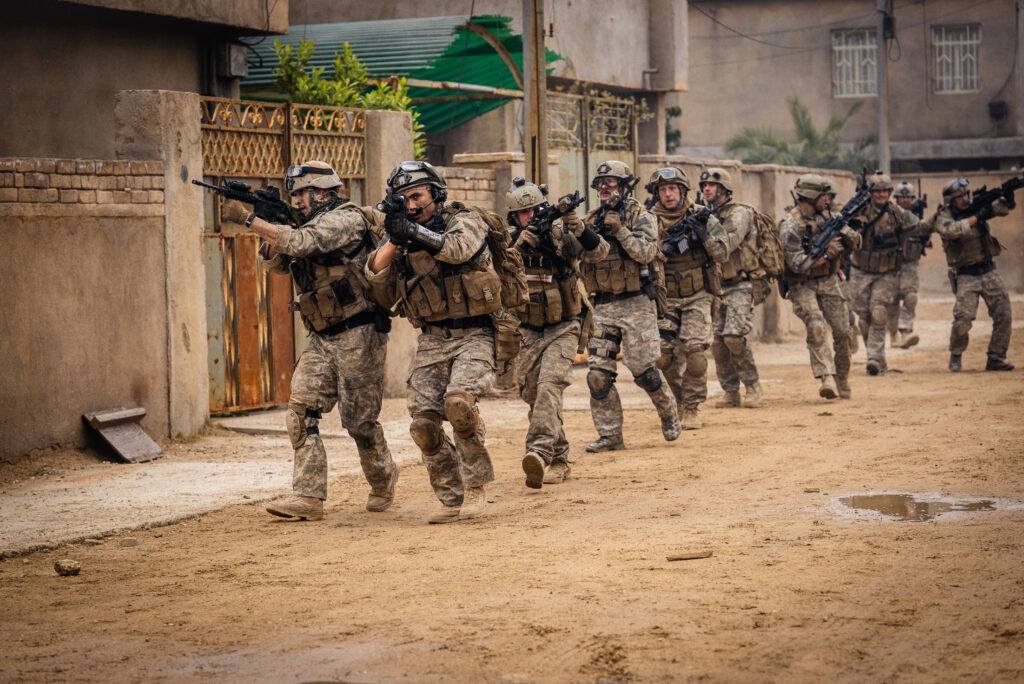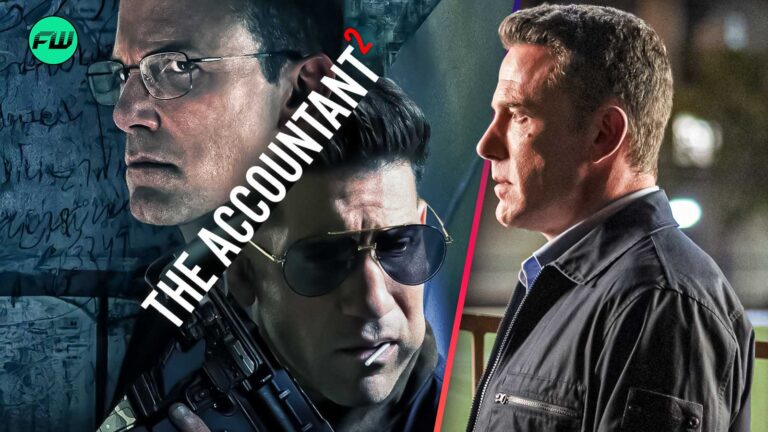
Known primarily for his work in the sci-fi genre, filmmaker Alex Garland (Civil War, Ex Machina) might not be the filmmaker you’d think of for a gritty, grounded war film. However, that is exactly what resulted from his collaboration with co-writer and co-director Ray Mendoza. Offering a very different type of experience than your typical war film, Warfare is the type of ambitious experiment that bites off much more than it can chew.
Warfare Review
Warfare follows a platoon of Navy SEALs on a mission in Iraq as they are trapped in a house by a squadron of enemy combatants and must make a plan on the spot to escape and protect their own. Inspired by Mendoza and his peers’ memories of their real-life experiences, the movie has a very simple narrative but is very engaging nevertheless.
Mendoza previously worked as a military advisor on Garland’s last film Civil War, and Warfare essentially feels like a 90-minute dose of that movie’s combat scenes transposed into the real world. Being a veteran, Mendoza brings his experience to Warfare’s dialogue and choreography to make it feel more esoteric than most war films, with a believable authenticity that couldn’t really be verified anyway.

However, herein lies the issue. Warfare is an expertly choreographed film, but it feels just that… choreographed. Although it never feels like the flamboyant spectacle that some war movies become (looking at you, All Quiet on the Western Front), the level of technical precision in Mendoza and Garland’s film still keeps it from feeling like we are doing anything more than watching a movie. It still feels very upsetting and impactful, but it doesn’t quite reach the level of visceral and immersive that it strives for because you can always see the level of painstaking detail that went into making the movie what it is.
That’s not to say that Warfare isn’t impressively made — it absolutely is. The sound design is incredible, particularly if you watch it in a premium format like IMAX. Mendoza and Garland do not make the mistake of confusing more sound for better sound. Although Warfare is indeed loud, it also uses the spatial aspect of audio in a way that not every film has been able to pull off. The production design is also excellent, with the sets of the house and street both being very well-built.
Warfare clocks in at a brief 95 minutes, and after a few introductory scenes, it plays out mostly in real time. This leads to some purposeful lulls in pacing that Mendoza and Garland take advantage of in a way that is constantly suspenseful. It’s not constant gunfire and explosions — sometimes, it’s just standing by windows, waiting to see what’s going to happen. And these moments are filled with just as much horror and dread as those with more active combat.
Unlike many military films, Warfare is not jingoistic. It’s not the American Sniper-type, American exceptionalism-pushing movie about the glory of war. However, Mendoza and Garland’s script requires effort from the audience to see this. They present the bureaucracy of the military in a very matter-of-fact, subtle way that doesn’t hit the audience over the head. In this regard, it’s a lot more nuanced than many films of its genre.
The other cardinal sin of military-focused movies is xenophobia, and Warfare is not as innocent of this. Although it is not fully xenophobic, it also doesn’t quite have nuance in its treatment of Arab characters. Warfare does a good job of exploring the soldiers’ dynamic with the family whose home they forcibly commandeer, but the translators who work for them are depicted as stupid and selfish. There is almost something there about the objectification of translators by the military, but this theme is very underdeveloped. Although the purpose of the film is to be highly subjective and focused on the perspective of this unit, introducing these ideas and failing to expand on them is clumsy.

There are some very strong performances in the cast, namely Will Poulter (Guardians of the Galaxy Vol. 3) as the battalion’s disoriented leader, D’Pharaoh Woon-A-Tai (Hell of a Summer) playing the director Mendoza, and Joseph Quinn (Stranger Things) and Cosmo Jarvis (Shogun) as some of his comrades. These four actors will crush you with their emotions — whether big and flashy or small and restrained.
The large nature of the ensemble does mean that some actors don’t get much screen time, though, including some relatively famous ones. Some actors, like Noah Centineo (Black Adam) and Kit Connor (Heartstopper), are frankly difficult to pick out from the crowd. Yet, the purpose of this ensemble is to bring to life the unit as a whole, not to have individual divas, and the cast succeeds in that.
Is Warfare worth watching?
All in all, Warfare is an interesting experiment — and one that unquestionably has its heart in the right place — but it doesn’t all work. It’s certainly an impressively made film and Mendoza and Garland deserve kudos for making something as unabashedly raw as this, even if that rawness often doesn’t translate.
Warfare hits theaters on April 11.
This post belongs to FandomWire and first appeared on FandomWire



